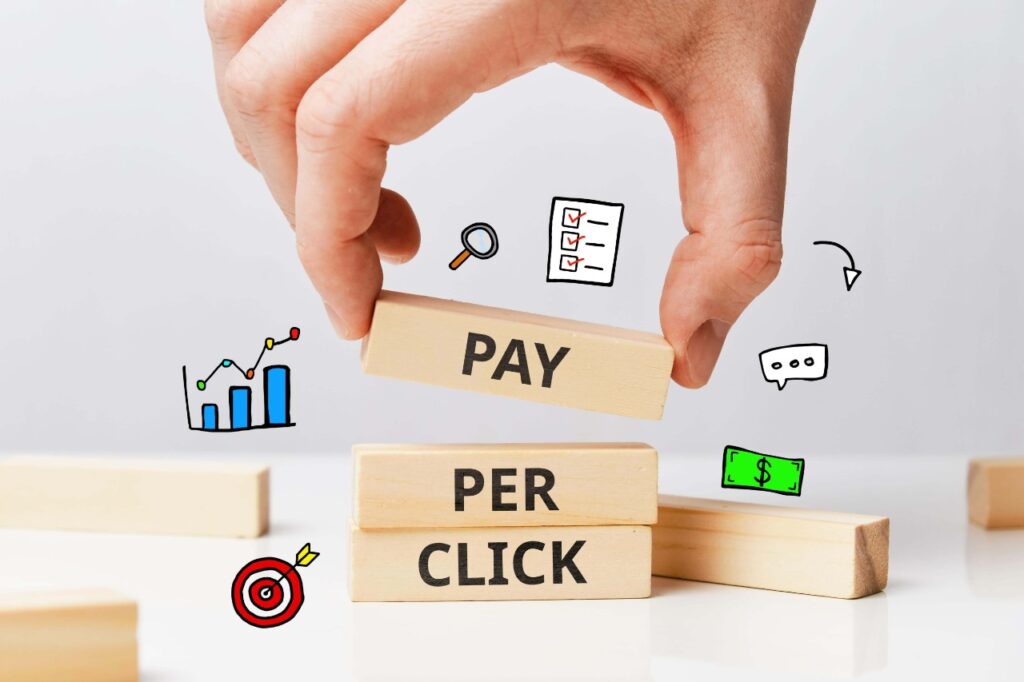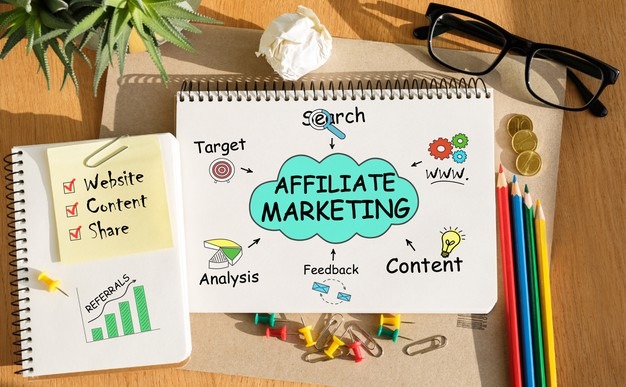A small business enterprise would be unable to have a long-term impact without adequate marketing. Digital marketing allows small businesses to have a level of exposure that only huge corporations have had access to in the past.
Digital Marketing for Small Business enables brands to communicate with their potential buyers and educate them about the services or products offered, and convert them into customers.
Your future buyers are likely to be casually surfing the internet and looking at their phones. You need to take command, put your business in front of them, pitch your products, and make a sale.
Table of Contents
What is Digital Marketing?
Digital marketing, also known as online marketing, encompasses all marketing efforts that use an internet enabled devices to connect with current and prospective customers.
It is a way of promoting your products on digital platforms, using digital media channels.
Digital marketing provides access to a vast demographic that is beyond the physical scope of a small enterprise. It also helps in keeping potential customers informed about new upcoming products, thus keeping them interested.
Small Businesses should leverage digital channels such as Email Marketing, PPC Advertising, Content Marketing, Search Engine Optimization (SEO), Social Media Marketing (SMM), Facebook Advertising, Affiliate Marketing, and other web-based advertisements to market products and services.
Why is Digital Marketing important for small businesses in India?
The dream of every small enterprise is to have consistent lead pipeline which converts to sale.
A well-defined digital marketing plan can make this dream come true.
Small Business Enterprises in India are on a meteoric climb, thanks to emerging digital technologies.
“The number of SMEs in India currently stands at 75 million, with that number projected to rise to 105 million in the next five years”
Also “According to RetailDive, 87% of shoppers now begin product searches online”
With this level of an upsurge in new businesses and increase in internet penetration, Digital Marketing is the ideal option for Businesses to reach their potential customers.
Here are some of the important ways Digital Marketing can help small businesses
- Digital Marketing empowers small businesses to get in front of potential buyers, showcase products/services, provide offers, and make a sale.
- Digital Marketing aids small businesses to get ahead of the competition by equipping them with the channels necessary to target the most lucrative audiences who are likely to become customers.
- With digital marketing, small business owners have the opportunity to generate a consistent influx of targeted traffic that converts to leads and sales.
Let’s explore what digital marketing channels are, and how you can use them to improve brand awareness, increase traffic and generate sales.
Here are some Digital marketing channels that you can use to grow your small businesses:
1. Email Marketing
2. PPC Advertising
3. Content Marketing
4. Search Engine Optimization (SEO)
5. Social Media Marketing (SMM)
6. Facebook Advertising
7. Affiliate Marketing
But it’s important to have a good understanding of these Digital Marketing Channels to successfully implement for your Small Enterprise.
Digital marketing channels to use for small businesses
1. Email Marketing

Email marketing for your goods or services can be a fast, versatile, and cost-effective way to attract new consumers while also facilitating frequent website visits.
As an SME, Emails are a formidable asset, that you have full control over.
When you build a list of subscribers you can target, you are in control and have something that is a 100% yours. No external factor has a say in this.
SMEs can use email marketing to send out tailored and personalized messages and newsletters regarding their products and services.
Through these, you can create anticipation about the next updates and by staying in touch with your customers and keeping them informed about your business enterprise, you can establish a reputation through email marketing.
The more people read about your business endeavors and the more they know about it, the more likely they are to develop trust in your brand.
I bet you never thought of how crucial email marketing can be, right?
2. PPC Advertising

Pay-per-click (PPC) is a digital marketing model in which advertisers are charged a fee each time one of their advertisements is clicked.
Essentially, it’s a means of purchasing website traffic rather than trying to “earn” it organically.
A well-managed PPC campaign can be extremely beneficial to small business enterprises as it enables you to target a specific demographic to produce rapid results and keep your marketing budget under control.
It’s also the simplest and most affordable way to increase customer loyalty and generate new leads. One of the most common types of PPC is search engine ads.
The most significant benefit of PPC that can be a defining factor for Small Businesses is that anything can be measured using conversion metrics like cost per click, cost per 1000 impression, cost per lead/ purchase, and return on ad spend.
PPC’s provide this data using extremely accurate reporting methods that can help small enterprises rephrase their marketing approach.
As a result, before investing more money in your PPC campaigns, you can evaluate what’s working and what isn’t, and adjust your campaigns as needed.
3. Content Marketing

“The most popular content marketing search term is “content marketing strategy.”
Content marketing is the process of creating and distributing useful, relevant, and consistent content, including written (Blogs, articles, etc.) and visual media(memes, videos, etc.), focused on the interests of a clearly defined target audience with the goal of driving profitable consumer engagement.
Content marketing, as opposed to paying ads, is more concerned with long-term outcomes.
The initial payoff is usually minimal, but long-term, sustained growth in new site visitors( network traffic), leads, and clients may help keep a small enterprise afloat on its own.
It allows your target audience to learn more about the products and services offered by your small enterprise. This is the right way to spread brand awareness.
4. Search Engine Optimization (SEO)

SEO is the method of ‘optimizing’ your website to draw more customers from searches that are important to you.
Ranking on the first page of google search engine result pages(SERPs) can work leaps and bounds for small enterprises. How?
Search is one of the main ways potential customers and online audiences look for products and services. Ranking higher on search engines (including but not limited to Google) can lead to an increase in traffic to a website.
Having an understanding of the keywords and how to target them by creating content along those lines is the cornerstone of SEO-optimized content.
Although Google search engines are used for these searches, this isn’t just about Google there are other search engines that can be utilized.
About 63.57% of the businesses actively invest their time in search engine optimization. In the last two years, smartphone searches for “where to shop” and “close me” have increased by more than 200 percent. (2019, Think of Google) (Source: Hubspot)
5. Social Media Marketing (SMM)
“Over 88% of businesses use Social Media as a marketing platform.”
Social Media Marketing (SMM) refers to the use of social media and networking sites like Facebook, Twitter, Instagram, etc to promote products and services offered by an SME.
If your small enterprise not using social media actively, now is the time to get started. People would opt for your rival companies over you who are present on social networks if they can’t find your SME on social media.
Small enterprises should engage with customers on social media as part of their marketing campaign.
Using social media to create brand awareness, will help you grow your business.
“Successful small businesses rely on social media to raise brand awareness 44 percent of the time and 41 percent of the time to boost sales”.
Facebook, Twitter, Instagram, LinkedIn, and Pinterest are some of the most popular social media platforms that every small business should make use of.
6. Affiliate Marketing

In simple terms, Affiliate Marketing involves hiring individuals (or a group of individuals) to promote your product as a third party.
But how can you use this strategy to drive your sales as a small business operating on a low budget?
With an affiliate marketing approach, there is little risk of loss since payments are made on a commission basis only when there’s an actual conversion or a sale is made.
This makes affiliate marketing perfect for small enterprises on a tight budget.
Conclusion
Digital marketing is a powerful tool that can truly revolutionize your business if you implement it correctly tailored to your specific business needs. It gives you an edge over your competition and allows you to target the most lucrative audience.
But in order for it to work you need to have a dedicated team of marketers who know the in’s and out’s and will go an extra inch every day. Imagine not having to worry about all the hassle on how to market and letting the experts do what they do best.

